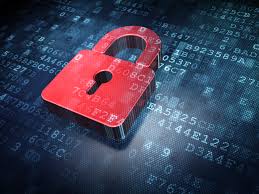
How to delete Qehu Ransomware from Computer?
Ransomware attacks have become increasingly prevalent in recent years, with the latest emerging threat being Qehu Ransomware. This insidious malware encrypts personal files locally stored in PC and restricts access until a ransom amount is paid. As a cybersecurity expert, it is crucial to understand how ransomware malware spreads, its encryption methods, potential vulnerabilities it exploits, and best practices for prevention and mitigation.
Spreading and encryption activities:
Qehu Ransomware primarily spreads through malicious email attachments, infected software installers and crack tools, compromised websites and deceitful ads/pop-ups, and external drives containing malware. It uses various infection mediums to compromise devices, making it essential to exercise caution when interacting with unfamiliar emails, software, and websites.
It has ability to exploit vulnerabilities in software and operating systems, particularly in the STOP/DJVU ransomware family. It capitalizes on single-use websites offering trending items like new movies or software cracks, which often employ spam techniques to artificially boost their search rankings and harbor malicious links that distribute ransomware.
Qehu Ransomware employs the Salsa20 encryption algorithm, which, although not the strongest method, still provides an overwhelming amount of possible decryption keys. It targets and encrypts specific file types like documents, images, videos, and more, using a symmetric AES algorithm. A unique encryption key is generated to lock each file, and the original files are deleted, leaving only encrypted versions with “.QEHU” extension appended.
Recent Cases and Developments:
Recent cases and developments related to Qehu Ransomware highlight the importance of being alert and proactive in the face of these threats. For instance, it has been responsible for over 70% of overall ransomware attacks since its emergence in 2018, and it continues to evolve and adapt to evade detection. That is why, it is always advised to have a strong anti-malware tool installed inside PC. A reputed and strong anti-malware tool not only helps User to remove Qehu Ransomware but also deploys security shield against malware attacks, protects PC from upcoming threats.
Keep in mind that Qehu Ransomware malware can target anyone, regardless of their level of computer expertise. This sophisticated program wreaks havoc once it infiltrates a PC, causing nothing short of disaster. If you suspect your computer is infected with this malware virus, it’s crucial to act swiftly to quarantine and delete Qehu Ransomware, thereby preventing further damage. We understand the frustration caused by its harmful behavior in these situations, and we’re here to help solve your problems.
Please Note:- Most of Security experts recommends using security tool and malware scanner tool like SpyHunter for malware removal rather than manual process. Manual process can be dangerous in situation Users uses this process carelessly. Carelessly using manual process can corrupt Operating System files causing System failure. That is reason many of security experts recommends to use security tool. Additionally, SpyHunter comes with free malware scanner that let you free scanning of whole Computer.
Avoiding malware attacks like a Pro:
Considering everything, the biggest reason for being compromised by malware viruses away lies with you. Even if you already have Anti-Malware and regularly check your computer, if you aren’t careful while using PC, malware problem might occurs again. Therefore, you just need to be careful to avoid being affected by threats in the future. Following some tips and suggestions mentioned here may prevent your computer from being infected in the future.
-
- Always Update your PC – In order to protect your system from virus infections you need to keep your PC updated. Make sure that your system automatically update the programs and security system and help your PC protected from threats and virus infections.
- Install and Use of Antivirus Software – Installing an anti-virus program is an effective method to keep your system protected from Qehu Ransomware along with other problems. Download and install an anti-virus program and always keep it up to date and time to time scan your system through anti-virus program.
- Never Click on Attachments or Links – It is advised to not click on the email links or attachments received from unknown sources. Sometimes, email attachments are contain malware’s component that get download inside PC if you click or open it. That’s why, it is advised to not open or download email attachments until proper investigation.
- Always Keep Firewall Enable – The Firewall keep your system protected from virus threats as it alert the system user if any virus infection try to invade into your PC. Firewall can block suspicious downloads and makes sure PC is protected from malware attacks.
- Always Enable Pop-up Blocker of your Browser – A pop-up blocker helps to prevent your PC from unwanted redirection and blocks the unwanted advertisements that contain unsafe and malicious codes. Pop-up maybe looks attracting in small window that appears on the corner of the website but they are the most dangerous one. Always keep the Pop-up blocker enable in your browser.
- Avoid using of Unsecured Wireless Network – Using wireless network for hacking stuffs are one of most common ways for hackers. Hacker use these networking channels to transfer files or Malware installer inside devices to victimize users.
If your PC has already been compromised and you need a reliable guide to remove Qehu Ransomware, you can use two possible methods.
Get rid of Qehu Ransomware by using Anti-Malware Tool (Hassle-free Malware Removal solution).
Using Manual Process (Technical and Risky, suggested only for Computer Expertise).
